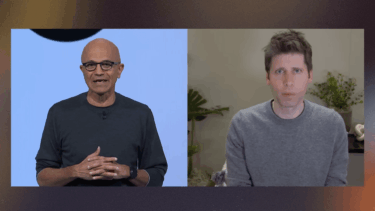Microsoft is selling OpenAI products with the bonus of enterprise safety, and open source is catching up. The combination is reportedly causing trouble for OpenAI.
According to a report from The Information, OpenAI's growth is coming under pressure as larger customers like Salesforce and Wix seek cheaper options. Generative AI, especially GPT-4, is expensive to deploy.
If large enterprises want to scale the service to thousands of employees, the cost can be high, depending on usage. Cheaper options come from other model providers or by using open-source models. Microsoft is also said to be focusing its research on more efficient AI models.
"We’re at the very beginning of this cost-reduction exercise in AI. It’s only going to become more important as these AI products reach greater scale and we begin to focus on achieving cost effectiveness," said Jayesh Govindarajan, senior vice president for AI at Salesforce.
Pete Hunt, founder and CEO of startup Dagster, said he recently switched from GPT-3.5 to Mistral-7B-Instruct for his video and audio file summarization service. As a result, costs dropped from about $2,000 per month to less than $1,000, with no complaints from users about lower quality.
Microsoft cashes in on OpenAI products
At the same time, Microsoft seems to be successfully selling its OpenAI GPT portfolio in the Azure cloud. This is supported by Microsoft's latest quarterly cloud numbers, which show that Azure cloud growth has picked up again thanks to generative AI.
Exclusive access to OpenAI's GPT models is likely to play an essential role here, especially as OpenAI models in Europe can only be accessed through Microsoft in compliance with GDPR. Much of that revenue stays with Microsoft. In addition, Microsoft is likely to have a trust advantage over a startup and is already established in many companies.
Furthermore, users can use different models in the Microsoft cloud, such as Meta's Llama 2. Even if Azure customers only use OpenAI today, they theoretically have the option to switch to a cheaper or more capable option in the future. With OpenAI, you are limited to GPT models.
So there are few good reasons to buy direct access to AI models from OpenAI instead of Microsoft. OpenAI won't have much of a defense against this, since Microsoft owns 49 percent of OpenAI. OpenAI CEO Sam Altman recently spoke of an excellent relationship with Microsoft, which, of course, has some quirks, Altman said.
Of course, OpenAI has absolute dominance in chatbots with ChatGPT. But even here, it is not clear whether the business is profitable yet. According to reports, OpenAI is currently targeting $1.3 billion in annual revenue.






